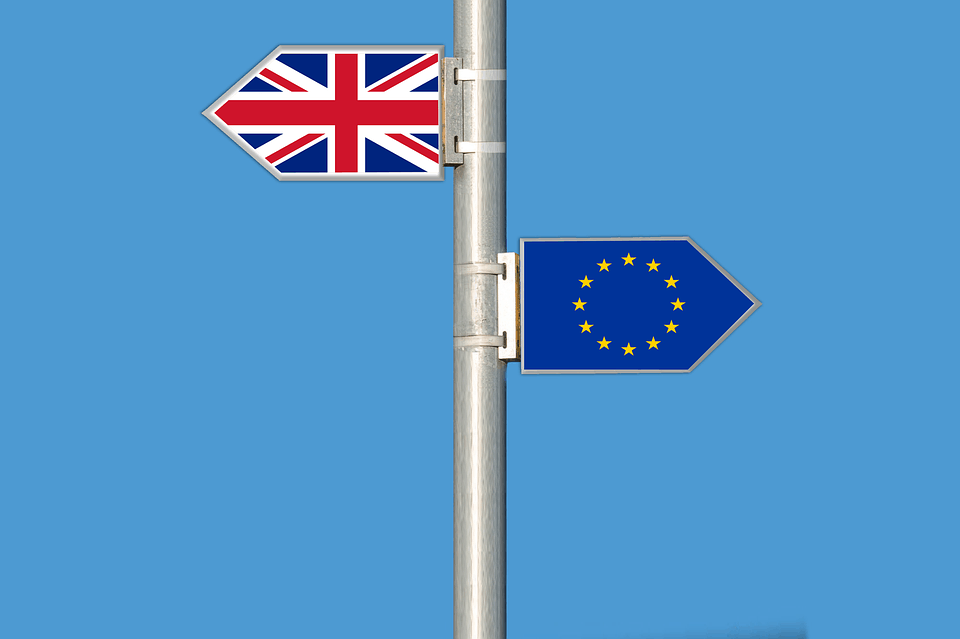7 Steps on How Startups and Small businesses in the UK can prepare for Brexit
Brexit isn’t all bad news after all! But how can Startups and Small businesses in the UK prepare for Brexit; and what exactly does it mean for UK startups & small businesses?
The process of Brexit began as far back as June 23, 2016, when the referendum was given for the UK to vote to leave the EU. The United Kingdom voters decided that belonging to the EU unified monetary body is no longer viable, with the result of the vote as 17.4 million favoring Brexit versus 15.1 million who voted to remain with the EU.
“Brexit” is coined from “British exit” which exit is supposedly from the European Union, and the UK eventually left the EU on January 31, 2020.
The aim of this post is to help startups and other small businesses in the UK to understand what Brexit entails, covering the seven steps to prepare by knowing what are relevant to your business, including work force and workplace rights, to website usage.

What is the Transition Period?
The transition period is between now to the end of 2020 when the UK and EU have set to negotiate additional arrangements. While the current rules on business, trade, and travel for the UK and EU will remain during the transition period.
So, now is the right time to plan ahead, as significant changes to tariffs and customs checks are inevitable, which is likely to lead to increase in paperwork, and thus, affect prices for certain goods and services.
The new rules for working, living, travelling and doing business in the UK and EU will be starting from January 1, 2021. Therefore you should prepare your business now.
7 Steps for Start-ups and Small businesses in the UK to prepare for Brexit
Always note that there are several sources of information available on this subject, including representatives of organisations, trade and industry and the UK Government website.
1. Get Customs Declarations
Starting from January 1, 2021 you’ll require customs declarations to move goods in or out of the EU. Therefore, you should get an EORI number if you don’t already have one.
And decide on how to make your business customs declarations and whether you’ll need someone to deal directly with the customs. While most businesses that import goods hire a customs agent or transporter to make the import declaration and also clear their goods through the UK customs.
There are several procedure you need to take before you can get goods through customs, including, getting an EORI number and CHIEF (Customs Handling of Import and Export Freight) system to make a declaration.
The most suitable for businesses that import goods regularly are the simplified declaration procedures and Authorised Economic Operator status.
2. Apply for Settlement Scheme
You’ll need to apply to the settlement scheme provided you or your family are from any of the EU countries, and you want to continue staying in the UK.
If you and your family need to continue living in the UK after December 31, 2020 and you’re from EU (except Ireland) or the following: Iceland, Liechtenstein, Norway and Switzerland, then use the tool provided here to find out what you need to do and when.
And fulfilling this is mandatory if you want to continue to live in the UK and you’re an EU, EEA or Swiss citizen after December 31, 2020.
3. Register as an Importer
You’ll need to register as an importer if you are mostly importing items such as high-risk food or feed, plant or animal products, medicines, textiles, chemicals or even firearms.
There are several departments to register with depending on the items you import: PEACH if you import fresh produce, or plant products, eDomero for ‘prohibited’ plant products, and the Fish Health Inspectorate if you import live fish or shellfish.
Additionally, the Forestry Commission is for those who import wood or wood products, the Medicines and Healthcare Regulatory Agency for importers of human medicines, Veterinary Directorate for importers of veterinary medicines. And the European Chemicals Agency (under the REACH regulations) for those who import chemicals, with the Department for International Trade for controlled goods.
4. Set up a Duty deferment Account
Setting up a duty deferment account is necessary if you want to be able to make payment of customs duties monthly instead of paying for shipments individually.
So, if you import regularly, you should apply for a duty deferment account to effect delay in the payment of customs charges, for instance: Customs Duty, Import VAT, and excise duty. The duty deferment account also allows you make payment through Direct Debit instead of paying for individual consignments.
And you can only apply for duty deferment account if you’re an importer or represent importers, and have authorized guarantee in place.
5. Intellectual Property Rights
If your business is registered with EU trademarks or Community designs, it will still be valid in the EU after Brexit, but you’ll need to be compliant with the United Kingdom intellectual property law which is part of English property law that covers the rights of intangible but valuable information.
It covers United Kingdom trade mark law for businesses, so if you have applied for an EU trademark or registered Community design and has not been granted as at the date the UK leaves EU, this should cover it. As the right type of intellectual property protection helps you to stop people stealing or copying the names of your products or brands, the design or look of your products, and so forth.
Additionally, patents, copyright, designs and trade marks are all part of intellectual property protection. While you get some protection automatically, others you’ll have to apply to get them.
6. Personal Data Policies
All UK businesses can still send personal data to the EU27 on leaving the EU, whereas the EU27 can no longer send personal data to the UK unless there is a different legislature in place.
The EU27 here, refers to the 27 European Union countries after the UK have left the EU; in other words, the EU had 27 countries, or the countries that were members.
The legislature could be Binding Corporate Rules for organisations whereby the data is received from overseas branches or mostly, Standard Contractual Clauses incorporated into the agreements.
7. Switch Domain Provider
If your UK business is running on .eu domain names and your business was established in the EU or the EEA, it is best to switch provider and move to UK-based registrants.
You can easily transfer .eu domain names now to SeekaHost UK to have a two-month grace period to truly demonstrate that your business comply to the eligibility criteria, that is, if you have a legally established entity in the EEA, failing which, your .eu domain name will be withdrawn.
All UK businesses should review their domain portfolios and providers to consider how to deal with their existing .eu domain names without delays.
Author Profile
- Guest Blogger & Outreach Expert - Interested in Writing Blogs, Articles in Business Niche | News Journalist By Profession in the United Kingdom
Latest entries
 Domain RegistrationJanuary 25, 2025Every UK Shop Needs a .shop Domain Name to Thrive in the Digital Age
Domain RegistrationJanuary 25, 2025Every UK Shop Needs a .shop Domain Name to Thrive in the Digital Age BloggingFebruary 4, 2022How to Create a Content Marketing Strategy Step-by-Step
BloggingFebruary 4, 2022How to Create a Content Marketing Strategy Step-by-Step Domain RegistrationApril 15, 2021How to buy domain and hosting for WordPress website or blog?
Domain RegistrationApril 15, 2021How to buy domain and hosting for WordPress website or blog? BloggingFebruary 10, 2021Top 10 Fashion Bloggers in London & their Blogs to follow in 2020
BloggingFebruary 10, 2021Top 10 Fashion Bloggers in London & their Blogs to follow in 2020


